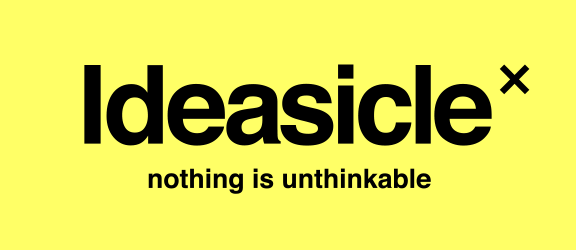When It Comes To Creativity, It's About Time
A new study suggests that, counter to conventional wisdom, the best ideas in a brainstorm are not the first ones that come easily, but are the ones that take a little time. Add to that the reality that creativity has a mind of its own and can’t be forced into a particular time frame. What we’re left with is the realization that time matters and we have to be careful with it when it comes to ideas.
Time has little chance in a live brainstorm
If a drill sergeant screaming in your face told you to come up with an idea RIGHT NOW, could you do it? It would be hard, right? First, you’re afraid of this guy. Second, you’ve got no time to even think about the problem, let alone come up with an idea.
Yet companies expect ideas from people all the time in this demanding way. Maybe no drill sergeants, but still you might only have an hour to come up with ideas, so what’s the real difference? Further, brainstorms tend to encourage group-think where one idea can “prime” the thinking of the rest of the group, thereby potentially quelling the different perspectives in the room.
There’s a fascinating Harvard study called, “Your team is brainstorming all wrong.” In it the researchers conclude that springing a brainstorm on people is not the best way to come up with ideas. Instead it’s best to allow the participants to “brainstorm” alone first AND THEN hold a brainstorm with the group. This move allows the participants to think about the problem independently, commit to some ideas, and then share their different perspectives with the group. Smart.
But there’s another reason time is required for creativity.
Incubation takes time
When creative people are inspired by a creative brief (more on composing an inspiring one here), they may come up with ideas on the spot, sure. But what’s more likely is that they internalize the brief, ruminate on it, and then when they least expect it out there living life, BAM!, a new idea hits them. It’s a little psychological condition called “incubation.”
Incubation is defined as: “a stage in the creative or problem solving process in which attention (consciousness) is diverted from the task at hand and focuses on something else. After the incubation period a 'flash' of creative inspiration or the solution to the problem comes to mind.” (source: Wikipedia)
When I say creativity happens when it wants to, I’m really talking about incubation. Just because you’re conscious of other things doesn’t mean your mind isn’t still churning on the brief. And when something in your life - a book, a tv show, something a friend says, anything - collides with your ruminations on the brief, ideas “flash” into existence.
But the point here is, the creative process requires time for incubation to happen so that these serendipitous collisions can happen.
Ideasicle X builds time into the process
Our SaaS platform is not designed for live brainstorms, but for time deferred brainstorms where the teams are given plenty of room to think independently as well as encouraged to work as a team. A project does not last an hour, but 3-7 days so there’s plenty of time for incubation and independent work. But also time for all the building and riffing that happens between the team.
One of our amazing freelancers on the platform once told me how she loved how her involvement with an Ideasicle project happened in the “in-between times” of her day. That’s a wonderful way of saying, the platform allows creativity to happen naturally.
It’s about time.

